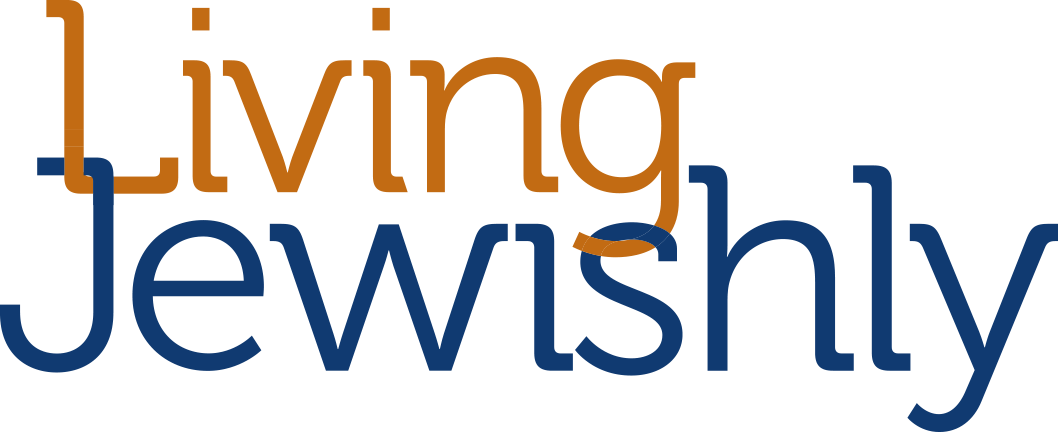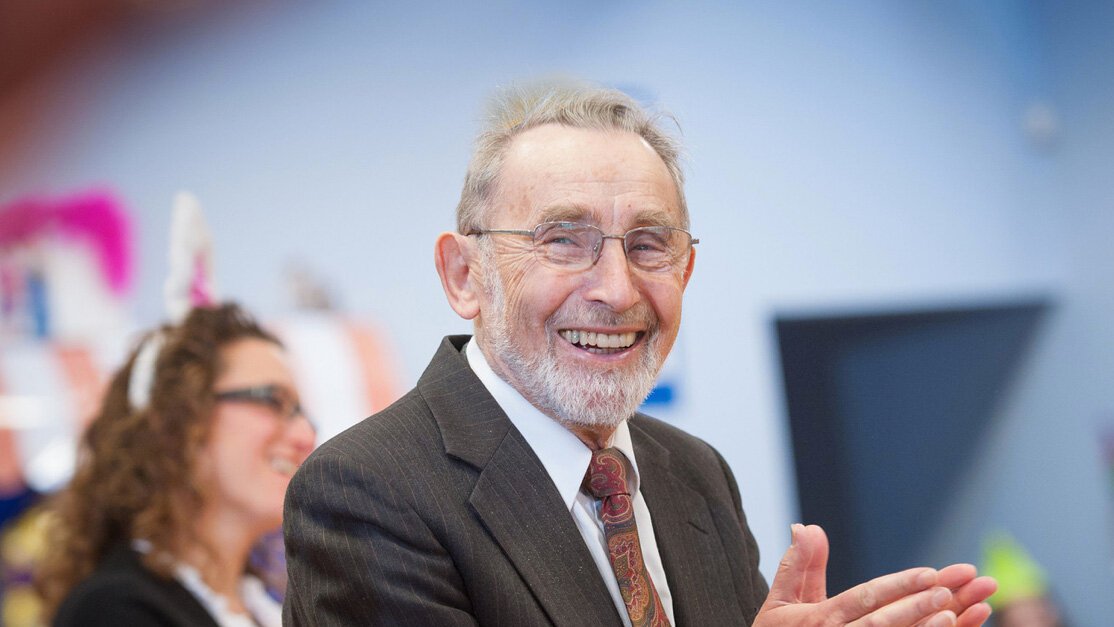The theological questions that emerge from the Holocaust are many, and they are difficult. What can the Holocaust mean for persons who have devoted their lives to Jewish belief and practice? Can a time of suffering be reconciled with faith in a benevolent God? How does the Shoah change the shape and meaning of Judaism for contemporary Jews? Like many of us, I have thought about and been highly disturbed by these questions, so in 2008 I contacted Rabbi Dr. David Weiss Halivni, who died on June 29 at the age of 94, and asked if he would be willing to discuss his thoughts about the Shoah.
He agreed to meet with me when I was in Israel to find out a bit more about my proposal. When I asked how I could get in touch with him, Professor Weiss Halivni told me to simply come on any day to the main library of the Hebrew University’s Givat Ram Campus and ask for him. And when I came to the library and asked for the professor, the librarian smiled and simply pointed to his usual seat, near the shelf containing the Talmudic works that were the subject of his life’s research. “I choose to sit here,” he says, “in order to save the time that accumulates in going to the shelf each time. The library staff keep this space reserved for me.” That is the way Professor Weiss Halivni went about his days, and offers us a tiny glimpse as to why he was awarded the Israel prize for Talmud in 2008 and was called by the newspaper, Ha’aretz, a living Talmudic Encyclopedia.
David Weiss Halivni was born in the small town of Kobyletz’ka Polyana, then in Czechoslovakia and now part of the Ukraine. After his parents separated, he was raised in the house of his grandfather, a Torah scholar and a Belzer Hassid, in Sziget, Romania. Professor Weiss Halivni studied in the same heder as Elie Weisel and the Satmar Rebbe, and was quickly recognized as a child prodigy. At the age of 16, he was deported to Auschwitz, but quickly was transferred to the forced labour camp of Gross-Rosen and then to Wolfsberg and finally to Mauthausen. He is the only person in his family to have survived the Shoah.
The incident that perhaps best fuses Professor Weiss Halivni’s Talmudic passions and his Shoah experience are narrated in his beautiful memoir The Book and the Sword, where he relates that one day in the labour detail, he came across a German guard eating a sandwich. He noticed that the greasy sandwich was wrapped in a page from the Shulhan Arukh, the standardized code of Jewish law. He relates that upon seeing this page, he instinctively fell at the feet of the guard and begged him for the page. The guard, following a very different set of instincts, put his hand to his revolver, and it was clearly a very tense and life-threatening moment. But the guard suddenly, inexplicably gave him the page, and that single page was studied for several months by Professor Weiss Halivni and a group of other learners, until it went up in the smoke of the crematorium along with one of those men, Mr. Moshe Finkelstein.
After being liberated from the camps, Professor Weiss Halivni moved to the U.S. and served on the faculty of the Jewish Theological Seminary for 30 years prior to his appointment as Professor of Talmud and Classical Rabbinics in the Department of Religion at Columbia University, where he retired in 2005. Thereafter he made aliyah and lived in Jerusalem. He is the author of several books on Talmudic scholarship, a book on post-Holocaust theology, Breaking the Tablets, as well as the memoir just mentioned, The Book and the Sword,
At the end of that memoir, Weiss Halivni poignantly tries to imagine his grandparents’ last moments as they entered the gas chambers. He writes: “What were their thoughts? Did they think of me? They did not blame God. Their belief was total and unconditional. Did they blame the Jewish leaders for not warning them to escape? They were not politically sophisticated. If they blamed anyone, it was only themselves for their own sins—they may have seen themselves as God’s scapegoat—making their suffering so much greater.”
This comment probably tells us more about Weiss Halivni’s own theological conflicts then anything his grandparents may have thought at such a moment. His own belief structure was permanently influenced by the events of the war, not in the sense of altering his practices—he remained halachically observant throughout his life—but regarding the meaning he ascribed to that praxis. He notes, in the immediate aftermath of being liberated on May 6, 1945, “I remember fasting on Tisha B’Av, not out of sorrow for the destroyed Temples—more immediate sorrows compelled my commemoration—but out of a sense of historical continuity. Recent events had cruelly fractured that continuity, but I was trying to hold on to it, to preserve contact with the past that had left me no living remnant and exposed to me to abysmal loneliness.”
The death of everyone around him created a kind of cosmic loneliness for Weiss Halivni, almost akin to surviving a nuclear conflagration and waking up to a post-apocalyptic universe. Like the ancient Noah after the Flood, Weiss Halvini, and many others with similar war experiences, tried to reconnect with his Jewish and historical past, not as an act of piety, but to grasp an emotional but ever fraying lifeline.
It was Torah learning that provided a kind of screen or insulation against the trauma of those years. He alluded to his love of Talmudic study, even while in the ghetto of Sighet, as “a ghetto within the ghetto,” a way to sustain himself even before he was incarcerated.
It was staying alive, rather than death, that mystified Professor Weiss Halivni, and why people survived the camps was for him much harder to analyse than why people perished. He writes that it was a complex series of factors, including just plain luck: “Humankind’s tendency to cruelty may be explained in terms of a few principles, whereas survival of cruelty needs to be explained in terms of individual stamina. It requires as many answers as there are individual survivors, which makes the task impossible. To put it differently: whereas all those who perished, perished more or less the same way and for the same reasons, those who survived, survived in their own ways and for their own reasons. The former is within the domain of scholarship. The latter defies scholarly capabilities.”
Weiss Halivni’s own defiance came in the area of trying to explain the horror. He utterly rejected four propositions about the Holocaust: “First, theological justifications of the Holocaust, which must be rejected out of hand. Second, even raising the theological question of why there was a Holocaust, implying that an answer might be found; third the notion that survival was possible only at the expense of others and that therefore every survivor must have a sense of guilt; and fourth, the belief that all survivors of the Holocaust necessarily share certain sociological and psychological characteristics.”
Indeed, he was not shy about ascribing blame to God: “We must somehow find room for acknowledging that something went awfully wrong – that nobody extended help, not even God Himself.” And In Breaking the Tablets, he adds: “At Sinai, God appeared before Israel, addressed us and gave us instructions; at Auschwitz, God absented Himself from Israel, abandoned us, and handed us over to the enemy.”
Professor Weiss-Halivini lived his life in between this heartbreaking binary, the affirming God of Sinai partially subsumed by the forsaking god of Auschwitz. To the end, he understood the religious life as a paradox, oscillating between presence and absence, between Divine intervention and divine abandonment, between our connection and our detachment. “Every aspect of spiritual life is affected by this movement: the way we believe, the way we pray, the way we study His Torah, and the way we make ritual decisions.”
May His memory be for a blessing.


0 Comments